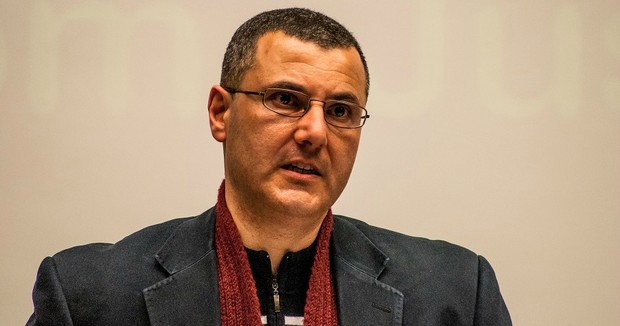Interview
Omar Barghouti: ‘There’s a collective will to end the complicity with Israel’
We spoke with the cofounder of the BDS movement. ‘At the corporate level, BDS has played a major role in the cancellation of some of the largest investments in Israel.’

The Boycott, Divestment, Sanctions (BDS) movement was launched in 2005 by Palestinian civil society, both within Palestine and in the diaspora. It calls for an end to the military occupation and the system of apartheid, and for respecting the right of refugees to return to their lands and receive compensation in accordance with international law.
As a nonviolent movement, it draws inspiration from the struggle against apartheid in South Africa and the Civil Rights Movement in the United States. The theory of change adopted by BDS is “from the ground up,” aiming to build power from below to influence policy at the top. We spoke about the movement with its co-founder, Omar Barghouti, who is currently in Italy.
Can you sum up the trajectory of the movement over its 20 years of existence?
Today, our allies are no longer just trade unions and social and climate justice movements. In terms of the discourse, the United Nations commission has now shown that what is happening is genocide. We have recognition from Amnesty International and other human rights experts. The impact is also very concrete in terms of cultural and academic boycotts, and, increasingly, sports boycotts as well. Just a few days ago in Hollywood, thousands of artists signed a pledge to boycott the Israeli film industry. That is unprecedented. At the corporate level, BDS has played a major role in the cancellation of some of the largest investments in Israel. For instance, Intel, which was planning a $25 billion factory in Israel two months into the genocide. Prominent Israeli economists have written to Netanyahu telling him the country is spiralling towards collapse due to brain drain and declining investment in high tech. By blocking exports and deals, BDS has changed Israel’s entire trade landscape.
Last Monday, Italy ground to a halt with the first major strike in solidarity with Palestine. Is the national level important for a boycott?
It is important because it shows a collective will: to put an end to complicity. It means that Italy must, first and foremost, implement a complete military embargo. That includes trade, exports, imports, dual-use technology, and transit. I think most people know the [Italian] government is lying when it says it put a stop to these deals.
Spanish Prime Minister Pedro Sánchez recently approved a military embargo and sanctions against Israel. Is it too late?
It is 70,000 Palestinian bodies too late. It should have happened in November 2023, not September 2025. The world should not have allowed so much time to pass. And that is the main point of BDS: it is about ending complicity. Your state is also harming us; your companies are harming us. The beginning of meaningful solidarity is the end of complicity.
BDS has also been accused of anti-Semitism. How can we reframe the meaning of that word today?
The accusation is framed as if Israel represented all Jewish people, and as if all Jewish people were a single, monolithic bloc with no diversity. Israel and the Zionist movement have historically been involved in fanning the flames of anti-Semitism. From day one, they have had relationships with anti-Semitic groups, like the neo-fascist parties throughout Europe and the U.S. who are Israel’s best friends. Anti-Semitism is also being weaponized to suppress activism for Palestinian rights. But there is a side effect: they are also sacrificing the safety and well-being of Jewish people. Many of our Jewish partners, especially in the United States, understand this. If you equate Jews with Israel, then the occupation is Jewish, settler-colonialism is Jewish, apartheid is Jewish, and genocide is Jewish. But that is not true. And so there is nothing anti-Jewish about trying to end these structures of violence and colonial subjugation.
How significant is the current wave of recognitions of the state of Palestine?
It is something entirely abstract when coming from states that are deeply complicit in the genocide, like the U.K., Canada and Australia. What does it mean to recognize the state of Palestine while you are complicit in the destruction of its people? People are saying that Italy should recognize Palestine, but this is not a priority for Palestinian society. The demand must be: stop being complicit, and only then recognize whatever you want. This is why unity and collective action are needed. I know the left in Italy is quite divided, and that’s fine. Conflict, debate, and controversy are fine. But it’s time to find some common denominators, and I think Palestine must be one of them – not because Palestinians are special, but because this is the world’s first televised genocide. It is testing the very limits of international law. It is destroying it. Everyone should have an interest in saving the international legal system that has existed since World War II – everyone, and especially the left.
Originally published at https://ilmanifesto.it/omar-barghouti-ce-una-volonta-collettiva-porre-fine-alla-complicita on 2025-09-23
